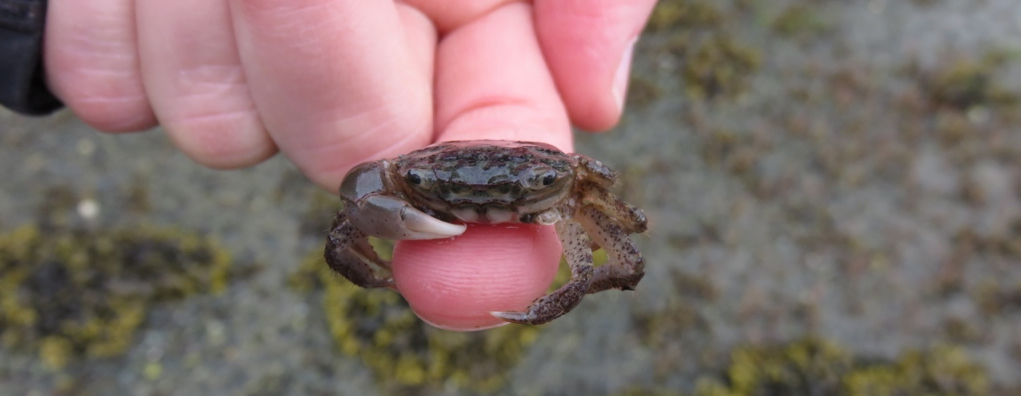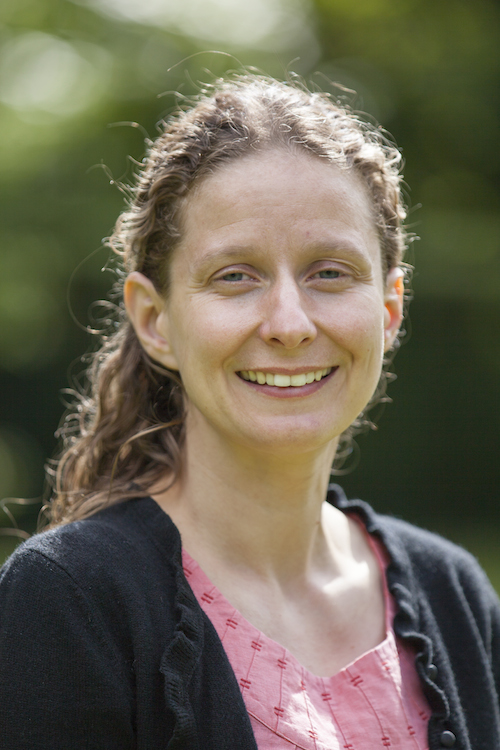
When we are faced with issues of climate change, habitat loss, global population increase and the resulting demands for resources and waste management, the question is not just how to respond, but why? In her lecture at the Faraday summer course, Biblical Dr Hilary Marlow described three ways people answer the question “Why care for the Earth?”
The first reason the world might be worth caring for is centred on the value of living organisms in themselves. The biologist E.O. Wilson calls this ‘Biophilia’, and writes that this is “the innately emotional affiliation of human beings to other living organisms. Innate means hereditary and hence part of ultimate human nature.” For him, “The biophilic tendency … appear[s] to be part of the programs of the brain”. He has suggested that we come up with a new moral reasoning based on these motivations – asking not just why we like to protect life, but constructing a “deep conservation ethic”.
Unfortunately, said Marlow, there is no data to support this view – it’s just a hunch that a love of nature is somehow in our genes. But some people don’t love of nature, or are even afraid of it. Most of us have an automatic fear of snakes, for example. Wilson has also failed to explain why an innate tendency – if it exists – should become the basis of moral reasoning. [For example, I like cake, but that doesn’t mean it’s good for me…]
The second way of justifying the conservation of wild nature is to look at how useful it is to human beings. ‘Ecosystems services valuation’ is now a recognised field of study, looking at – according to Defra – “a wide range of valuable benefits that a healthy natural environment provides for people, either directly or indirectly”. The Millennium Ecosystem Assessment (2005), and the Economics of Ecosystems and Biodiversity (2009) came up with categories of benefits, including cultural and spiritual ones, recognising the trade-offs between competing categories, such as food production and ‘climate regulatory services’ (which include rainforests).
But does the idea of ecosystem services really work? This way of seeing the world could be exploitative – the attitude of what’s in it for me – and is also very hard to quantify. How can you measure the value of the sun, or the wind? If species are of no known benefit to humanity should we let them go extinct? How can you put a price on beauty or a religious experience? There’s also a worry that this system could be open to corruption and false accounting, being used to serve corporate greed or political ends. This way of accounting for nature might be a useful servant at times, but could be a very poor master.
Finally, Hilary put forward her own view, which is God-centred, or theocentric. As one commentator has said, “I used to think that top global environmental problems were biodiversity loss, ecosystem collapse, and climate change. I thought that with 30 years of good science we could address these problems, but I was wrong. The top environmental problems are selfishness, greed, and apathy, and to deal with these we need a spiritual and cultural transformation. And we scientists don’t know how to do that.” (Gus Speth, 2013)
If 87% of the world professes religious faith, including nearly 40% Christians, then perhaps it is worth listening to the voice of theology here. In his book Keeping God’s Earth, David Gushee wrote“In theocentric perspective, all creational value is derived value, in that God the creator is the one who authoritatively declares and demonstrates the value of all things that he has made. Only after we are clear about this can we venture to say that an entity has intrinsic value.”
In a God-centred view, nature has value because the creator has declared and demonstrated its value. This picture of the world is relational – between God, humankind, and the rest of creation. A relational view connects with today’s ecological understanding, with its web of life and relationship between cause and effect in nature. Also, the Bible’s story is of God and the whole world, not just God and people. There is a place here for correcting a view that is common in some churches, which focuses only on God’s relationship with people and not on all creation praising God.
In the Old Testament, we do have to recognise that wild nature was not just seen as a resource to be used, but also a threat to protect against – we have to be honest about what the text says. But the biblical view of creation is not just about what we can get from it. There were laws to preserve the fertility of the land, and provide for wild animals. Some aspects of the natural world – such as the migrating birds who just get on with the job – are held up as an example to follow. Most of all, biodiversity, different species and habitats are all celebrated often and very joyfully. Creation, or nature, has value as a whole because it is created and sustained by God for a purpose, which is to praise him and reflect his character.
In the New Testament, the birth, life and death of Jesus all involve signs in creation – stars, nature parables and miracles, an eclipse and an earthquake. The New Testament writers are clear that all of creation is included in God’s purposes to save and restore the world, not just people, and that all of creation is longing for that to happen.
Hilary went on to outline how we can respond ethically to ecological issues, but the heart of the matter is it where we get our ethic from. For Christians, as the poet Wendell berry has written, “To live we must daily break the body and shed the blood of creation. When we do this knowingly, lovingly, skillfully and reverently it is a sacrament. When we do it ignorantly, greedily, clumsily and destructively it is a desecration. In such desecration we condemn ourselves to spiritual moral loneliness and others to want.”

© Faraday Institute
Ruth Bancewicz is a Senior Research Associate at The Faraday Institute for Science and Religion, where she works on the positive interaction between science and faith. After studying Genetics at Aberdeen University, she completed a PhD at Edinburgh University. She spent two years as a part-time postdoctoral researcher at the Wellcome Trust Centre for Cell Biology at Edinburgh University, while also working as the Development Officer for Christians in Science. Ruth arrived at The Faraday Institute in 2006, and is currently a trustee of Christians in Science.




